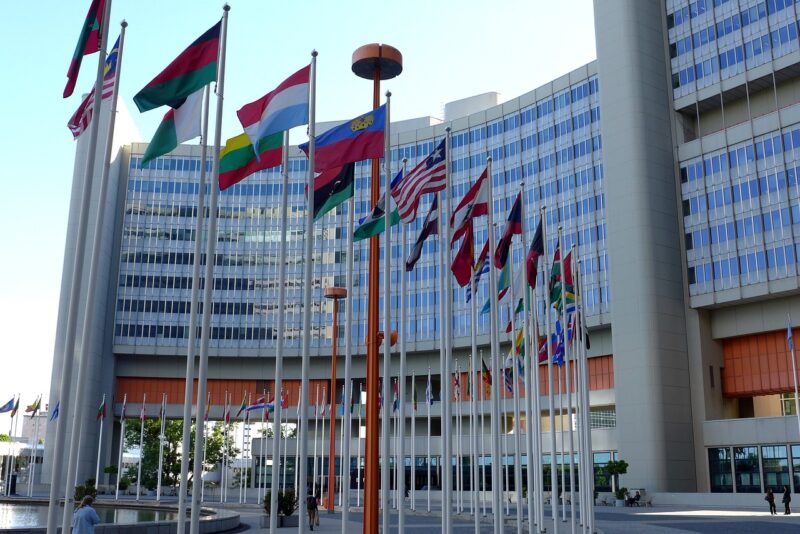
The foreign policy legacy of Donald Trump is a subject of much debate and analysis. During his presidency from January 2017 to January 2021, Trump initiated several significant changes in how the United States interacted with the rest of the world. From shifting alliances to economic policies and international agreements, the effects of his presidency are still being felt today. In this article, we will explore the pros and cons of Trump’s foreign policy legacy, providing insights into its implications for the future.
1. Overview of Trump’s Foreign Policy Philosophy
Trump’s administration was characterized by an “America First” approach, prioritizing American interests over international cooperation. During his presidency, Trump emphasized national sovereignty, economic protectionism, and a skepticism of multilateral organizations. This philosophy was reflected in several key areas of foreign policy, including trade, military engagement, and climate change.
2. Pros of Trump’s Foreign Policy
While Trump’s foreign policy approach was controversial, several advocates argue that it fostered positive outcomes for the United States and its allies:
a. Economic Prosperity and Trade Deals
Trump’s administration renegotiated trade agreements, notably the United States-Mexico-Canada Agreement (USMCA), which replaced NAFTA. The new agreement aimed to better protect American workers and promote fair trade practices. Additionally, his emphasis on reducing the trade deficit with countries like China led to tariffs intended to protect U.S. industries.
b. Strengthening Military Presence
The Trump administration took a hardline stance on military issues, advocating for increased defense spending. Trump signed the National Defense Authorization Act, calling for investments in military readiness and modernization. Proponents argue that a strong military presence provides leverage in foreign negotiations and reassures allies.
c. Middle East Peace Initiatives
One of Trump’s most notable achievements in foreign policy was the normalization of relations between Israel and several Arab nations, including the United Arab Emirates and Bahrain, through the Abraham Accords. Supporters argue that these agreements represent a significant step towards peace and stability in the Middle East.
3. Cons of Trump’s Foreign Policy
While there are notable achievements, many critics of Trump’s foreign policy argue that his approach led to significant drawbacks:
a. Alienation of Allies
Trump’s confrontational style often strained relationships with long-standing U.S. allies. His withdrawal from the Trans-Pacific Partnership (TPP) and criticisms of NATO raised concerns among partners about U.S. commitment to collective defense and international cooperation.
b. Withdrawal from International Agreements
One of the most debated aspects of Trump’s presidency was his decision to withdraw from several key international agreements, including the Paris Climate Accord and the Iran Nuclear Deal (JCPOA). Critics argue that these actions damaged the U.S.’s reputation on the global stage and undermined international efforts to address pressing issues like climate change and nuclear proliferation.
c. Increased Global Tensions
Trump’s aggressive rhetoric towards countries like North Korea, Iran, and China escalated tensions and raised concerns about global stability. The lack of traditional diplomatic engagement could hinder future negotiations and regional peace processes.
4. The Impact of Trump’s Foreign Policy on Domestic Issues
Trump’s foreign policy also had significant implications for domestic issues. Supporters argue that focusing on bilateral deals and prioritizing American labor helped to revitalize certain sectors of the economy. However, critics assert that his policies led to increased divisions domestically, with heightened nationalism and skepticism towards immigration impacting social cohesion.
5. Future Implications and Conclusion
The legacy of Donald Trump’s foreign policy will continue to influence U.S. relations for years to come. As the Biden administration navigates this complex landscape, it must consider how to balance America’s interests with global cooperation.
In conclusion, while Trump’s foreign policy produced certain successes, it also led to significant controversies and challenges. The long-term effects of his presidency remain to be seen, but it is clear that U.S. foreign policy has entered a new era marked by shifting alliances and evolving global dynamics. The lessons learned from this period will be critical in shaping the approach of future administrations as they seek to establish a foreign policy that both prioritizes national interests and fosters international cooperation.
Ultimately, assessing Trump’s foreign policy legacy requires a nuanced understanding of its multifaceted outcomes. Engaging in critical discussions about its successes and failures will be vital for policymakers as they aim to address the complex international challenges that lie ahead.








